Add Richness to Mahogany
This recipe creates an aged look for new mahogany.
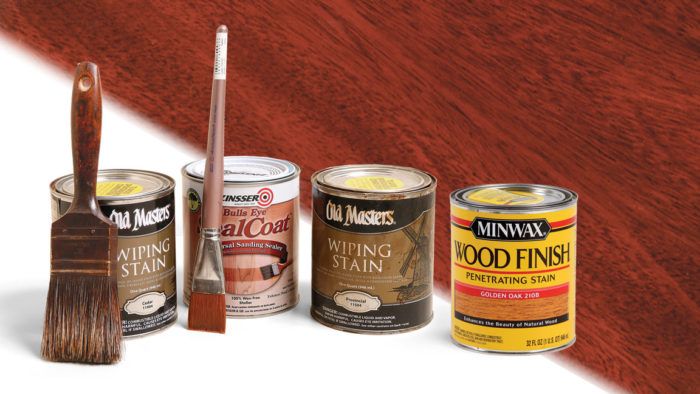
When we have a chance to finish very old mahogany in our shop, it usually needs just a few coats of shellac to look spectacular. Twentieth-century varieties and African substitutes like sipo don’t have the same yellow and orange undertones and rich red-brown color of the Santo Domingo and Cuban mahoganies available before 1900. To create the look of old mahogany on new wood, I use a multi-step process.
1. Turn a Stain into a Dye
You may already have the reddish- or greenish-yellow dye you need in your shop. If not, buy a small can at the hardware store.

Reddish-yellow dye—You might already have a reddish-yellow dye in your collection of stains. Minwax golden oak and Minwax Puritan pine are oil-based dyes with pigment added. If you let the can rest for a few days and don’t shake or stir it, you can pour off the liquid on the top, which will be all dye. I used Minwax Puritan pine. If the look is too red for your taste, try the golden oak, which is more greenish-yellow. You can get both in half-pint cans.
Sand the mahogany to 180 grit, then apply the oil-based dye undiluted onto the raw wood with a brush or rag and allow it to cure for at least 12 hours.
Spit coat—To keep the upcoming coat of stain from being absorbed too deeply in the wood, dilute SealCoat shellac by 50% with denatured alcohol and apply one thin coat with a rag. Allow it to dry for 30 to 60 minutes. The dye and shellac will raise whiskers in the wood and make it feel rough. Burnish it using a wadded brown-paper bag, scrubbing the surface until it feels smooth.
Cedar stain—Next, stain the wood using Old Masters Wiping Wood Stain in the cedar color. Give it a good stir so the pigment is dispersed, and apply it with a rag or foam brush. Immediately wipe off the excess and allow the stain to dry for at least 12 hours. The medium red-brown hue might look a bit saturated now, but it will be subdued by the final layer of color.
Two shellac topcoats—Now brush on two to three coats of Zinsser SealCoat shellac, full strength. Allow the first coat to dry for 30 minutes and scuff it with a brown-paper bag, brush on a second coat, and wait another 30 minutes. You should see a noticeable sheen or gloss. If you don’t, apply a third coat. Allow it to cure for three to four hours, and then sand lightly with 320- or 400-grit sandpaper wrapped around a block to level the surface.
2. Subtle Way to Use Stain
A full-pigmented red-brown stain goes next; the previous dye and a spit-coat of shellac will dull its effect.

Subtle Stain. The red-brown of Old Masters cedar will warm up the wood and add more depth. Wipe it on with a rag or paper towel, wipe off the excess, and let it dry 12 more hours.
Try a brown glaze—If you like the look you have, you can stop here and apply the final topcoats of shellac or lacquer. But I love the added depth and non-uniformity that comes from multiple layers of color. I use Old Masters Wiping Wood Stain as a glaze again, this time in the provincial color, a Van-Dyke brown hue.
Use a rag to apply the glaze just as you would apply stain, but then remove the excess with a dry, 2-in.-wide, high-quality, white china-bristle paintbrush. As the dry brush starts to get loaded with glaze, work out the excess onto a paper towel. Arrange the glaze evenly on the surface. Don’t worry if you leave a few brush marks. If they go with the grain, they will disappear. The goal is a translucent layer of color. Clean the brush with mineral spirits and allow the glaze to dry for at least 12 hours before topcoating.
Finish up with more shellac—After the glaze dries, don’t sand or rub it. Apply at least two more coats of the blond Zinsser SealCoat, then level the surface with 320- or 400-grit sandpaper, apply one thin final coat, and rub it out.
To subdue the intense red-brown and make the look richer and more complex, try a glazing technique, arranging stain on a film of shellac.


Your mahogany sample should have a deep, rich look that can’t be duplicated with a single application of dye or stain.
Fine Woodworking Recommended Products
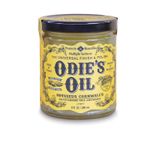
Odie's Oil
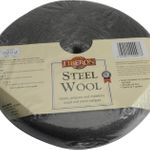
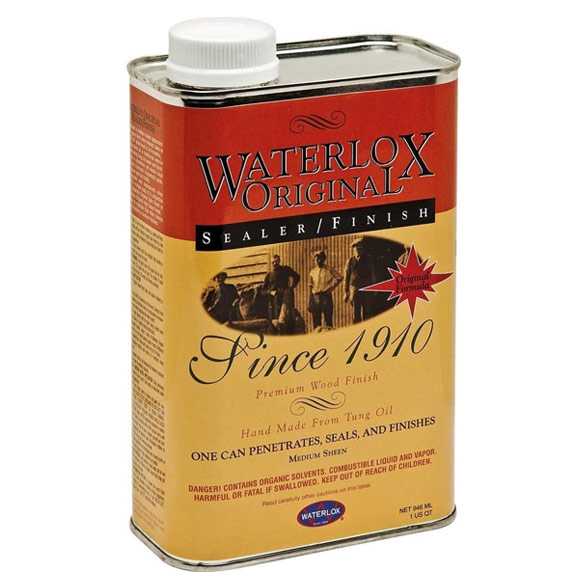
Waterlox Original
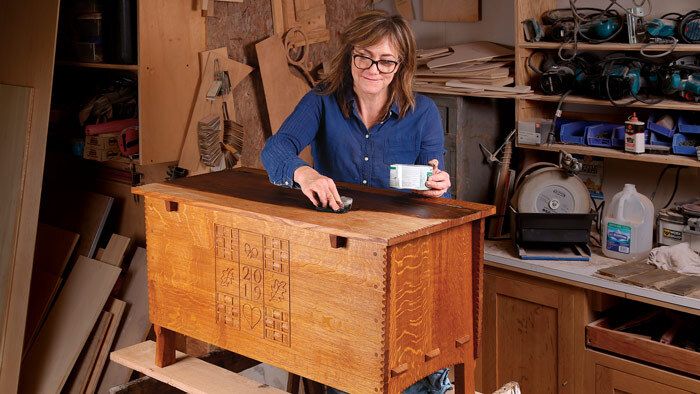






Log in or create an account to post a comment.
Sign up Log in